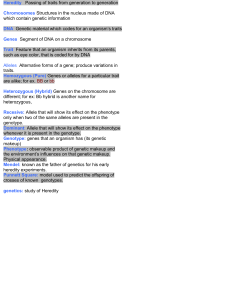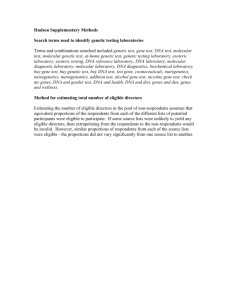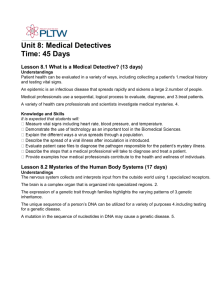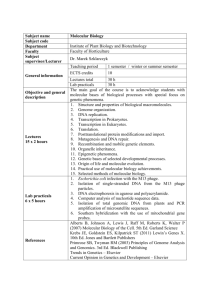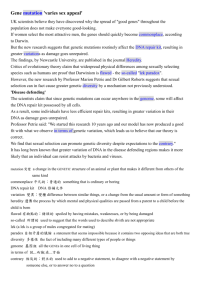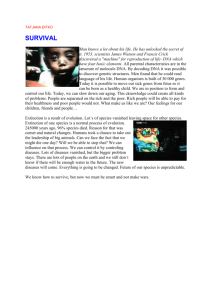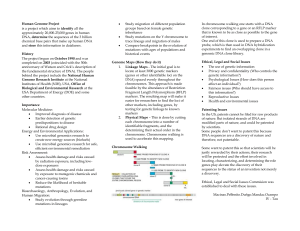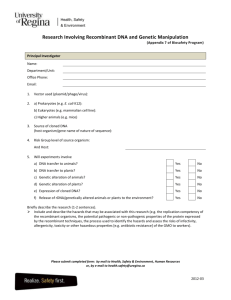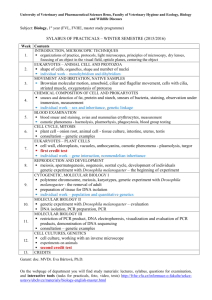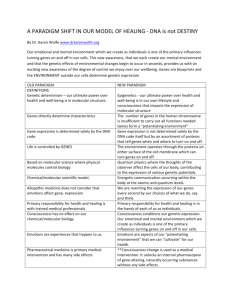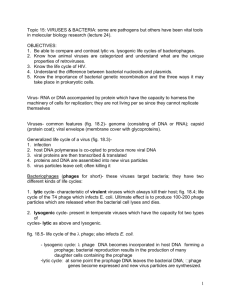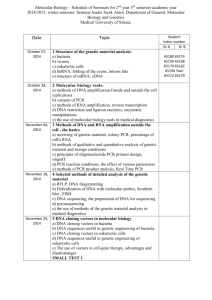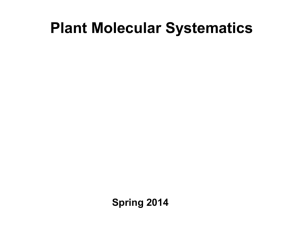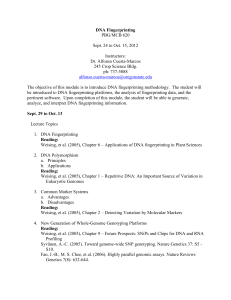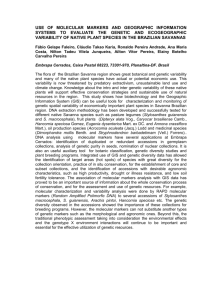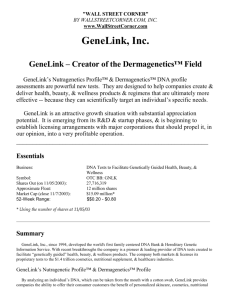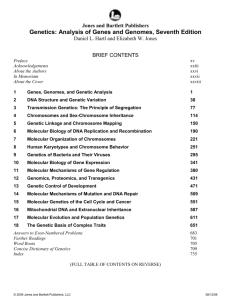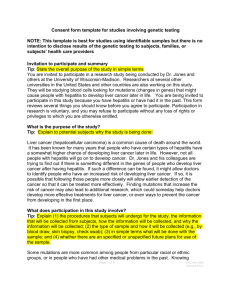CHAPTER 21
advertisement
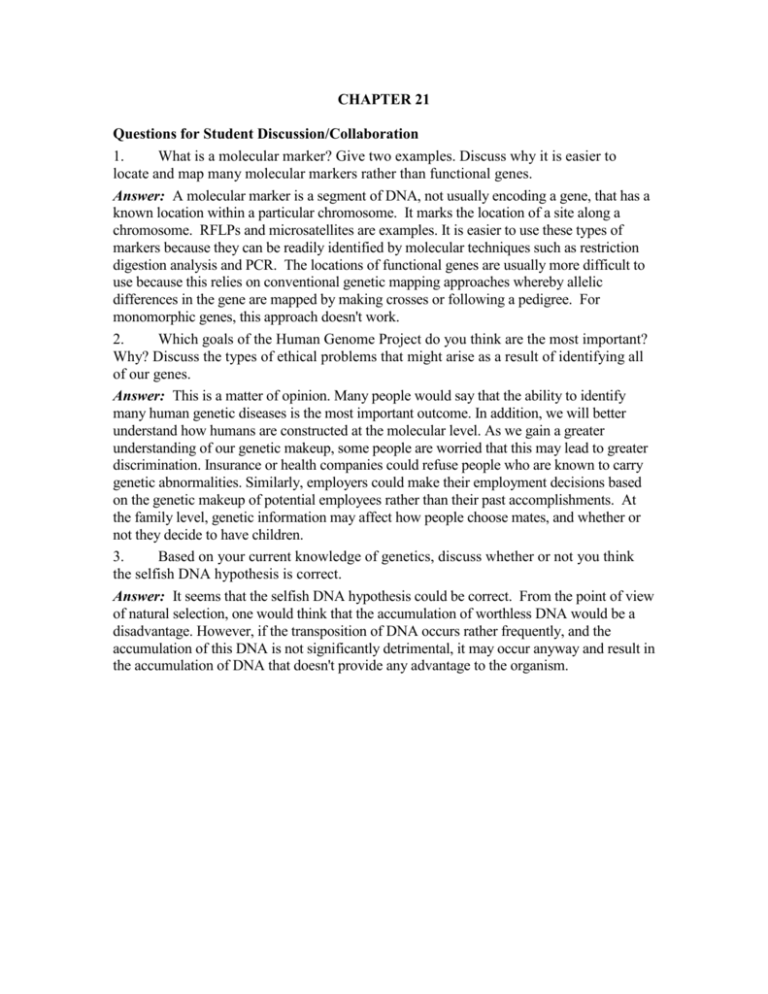
CHAPTER 21 Questions for Student Discussion/Collaboration 1. What is a molecular marker? Give two examples. Discuss why it is easier to locate and map many molecular markers rather than functional genes. Answer: A molecular marker is a segment of DNA, not usually encoding a gene, that has a known location within a particular chromosome. It marks the location of a site along a chromosome. RFLPs and microsatellites are examples. It is easier to use these types of markers because they can be readily identified by molecular techniques such as restriction digestion analysis and PCR. The locations of functional genes are usually more difficult to use because this relies on conventional genetic mapping approaches whereby allelic differences in the gene are mapped by making crosses or following a pedigree. For monomorphic genes, this approach doesn't work. 2. Which goals of the Human Genome Project do you think are the most important? Why? Discuss the types of ethical problems that might arise as a result of identifying all of our genes. Answer: This is a matter of opinion. Many people would say that the ability to identify many human genetic diseases is the most important outcome. In addition, we will better understand how humans are constructed at the molecular level. As we gain a greater understanding of our genetic makeup, some people are worried that this may lead to greater discrimination. Insurance or health companies could refuse people who are known to carry genetic abnormalities. Similarly, employers could make their employment decisions based on the genetic makeup of potential employees rather than their past accomplishments. At the family level, genetic information may affect how people choose mates, and whether or not they decide to have children. 3. Based on your current knowledge of genetics, discuss whether or not you think the selfish DNA hypothesis is correct. Answer: It seems that the selfish DNA hypothesis could be correct. From the point of view of natural selection, one would think that the accumulation of worthless DNA would be a disadvantage. However, if the transposition of DNA occurs rather frequently, and the accumulation of this DNA is not significantly detrimental, it may occur anyway and result in the accumulation of DNA that doesn't provide any advantage to the organism.

